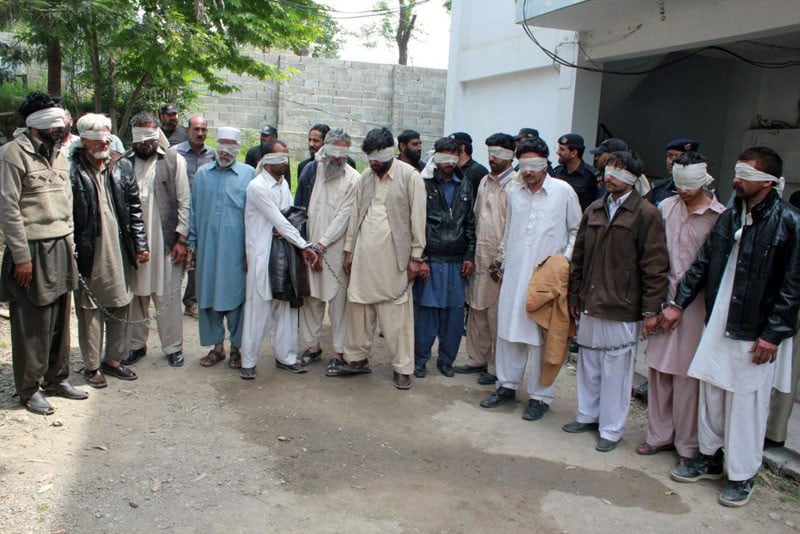
It’s time the state took responsibility of protecting its citizens’ lives and said no to jirgas

Under the star-spangled sky of Dunga Gali, KP, on April 27, teenaged Ambreen Riasat was drugged, possibly strangulated, put in a van and set on fire. Reportedly, she was killed on the orders of a jirga as punishment for helping one of her friends elope.
Ambreen is not the first to die such a death -- and she will not be the last. Only last year 1,100 women and 88 men were killed in the name of honour in Pakistan.
But what makes her case worth commenting on is the silence with which it has been greeted in the media. The print media carried some articles but the electronic one -- which has more impact -- is obviously too preoccupied with the Panama leaks. None of the politicians, including those from KP, where this happened, has made much of it.
There are several questions for the state to answer. What is the legal status of such informal tribunals as panchayats, jirgas and wadera courts? From the encomiums sung about these informal institutions by anthropologists one would think they are the answer to everything in the realm of the delivery of justice. They are praised for being indigenous, for giving speedy judgments and for being cheap. While this may be true in cases of cattle theft or the like, it is just not true for cases involving women.
Men --powerful men -- dominate all these institutions and they are based on patriarchy as a core value. Patriarchy in our country means women are not allowed to have partners of their choice. Honour lies in a woman’s conduct and this conduct should, above all, make her obey the family or the biradari in such matters. Thus, any choice on her part of a male partner makes her vulnerable to punishment -- and this is ensured by the jirga.
Jirgas are said to have ordered naked parades of women and even rape to humiliate them. They also hand over women in slavery, or virtual slavery, for the murders committed by men of their families. Thus, to wax lyrical about the virtues of the jirga system is not intelligible for anyone who wants the rule of law and humanitarian values to prevail in the society.
If these informal systems of justice have not ended, it is the failure of the state. And if we have not transited from a medieval male-dominated worldview to a modern, enlightened one it is because the state has not ensured it. Our textbooks, books, media and schools do not teach us the rights of women and the necessity of ensuring that they have the choice of their partners in their hand rather than that of their families. This is a major shift in the belief system of the country and we have simply not done anything about it. That is why the police considers honour killing as legitimate and the only course of action open to a self-respecting male.
In short, not just the jirga but also the thana actually condone such killings of women. Under the circumstances how can one lodge an FIR and then see that it results in a conviction. And even if it does, there is the abuse of the qisas (retribution) and diyat (blood money) acts (sections 309 and 310) which make brothers kill their sisters and fathers pardon them.
There is a simple remedy, perfectly legal too. If cases of honour killings are classified under spreading evil on the earth (fasad fil ardh section 311 of PPC) rather than simple murder, then qisas and diyat does not apply. Those who wage a war against the state and spread fitna and fasad can be punished without the possibility of being pardoned by the family. If this happens, some would-be killers may be deterred; though, of course, the real change will only come when the worldview changes.
To prevent cruelty and to provide justice are the only aims of the state worth admiring for the citizenry. Otherwise states live to become more and more powerful and not to make their citizens’ lives happier and healthier. The state of Pakistan too has given top priority to make itself powerful but not to make its citizens happier.
When Malala was shot at on October 8, 2012, I was so shocked that I wrote an article How many Malalas will it take?. For three days I thought something will be done but then the talk shows came out saying we should not attack North Waziristan and that, somehow, Malala had staged a drama. We know now that the Malalas made no difference at all as children kept getting killed. Indeed, even now Malala is hated; she is the enemy; she is a Western stooge for many Pakistanis. So I am not sure if my writing on Ambreen will not make her an enemy too! But Ambreen burnt to cinders in that burning van so nobody can accuse her of staging a drama at least.